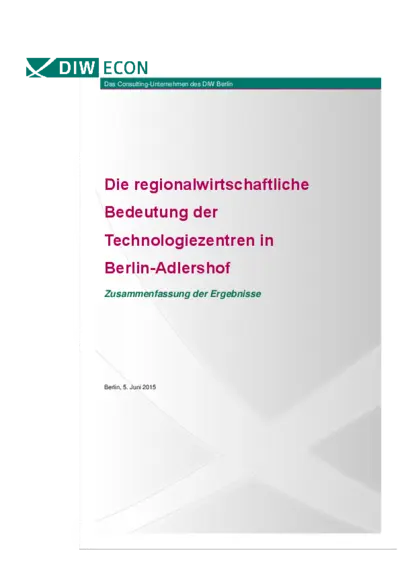Berlin Adlershof. Science at Work.
Discover the myth of Adlershof: founded in 1754, birthplace of German aviation, and site for research, film and television. Today the area has around 20,000 inhabitants, most located in the heart of the "old village". The Technology Park is close to the former airfield, now a landscape park.
The Berlin Adlershof Science City is one of the most successful high-technology locations in Germany—and Berlin’s largest media site. Renowned non-university research institutes, the natural sciences campus of Humboldt-Universität zu Berlin, 1,330 businesses and a rich history await you at Berlin-Brandenburg’s top Science, Business and Media hub. More than 34,000 people work and study in the science city of Adlershof, which covers an area of 4.6 km². Learn more about all the facts and figures…
News

HZB researcher awarded prestigious VAIBHAV Fellowship by Government of India
Dr. Prashanth Menezes honoured for his pioneering contributions to materials chemistry and catalysis:
The Ministry of Science and Technology, Government of India, has announced the recipients of the Vaishvik Bhartiya Vaigyanik (VAIBHAV) Fellowship, a flagship initiative aimed at fostering collaboration between the…

Watching bandgaps in motion – attosecond interferometry of solids
Research team establishes a broadly applicable, all-optical probe of band-structure dynamics in solids:
The bandgap, i.e. the energy gap between the highest lying valence and the lowest lying conduction band, is a defining property of insulating solids, governing how they absorb light and conduct electricity. Tracking…

Sasol and HZB deepen collaboration with strategic focus on digitalisation
“A significant step towards achieving more sustainable and efficient chemical processes on an industrial scale”:
Sasol Research & Technology and Helmholtz Zentrum Berlin (HZB) are expanding their partnership into the realm of digitalisation, building on their joint efforts in the CARE-O-SENE project and an Industrial Fellowship…

PFAS filter from a ball mill
BAM team develops environmentally friendly material that could help remove these ‘forever chemicals’:
PFAS are fluorinated compounds found in many everyday products, such as outdoor clothing and cookware like Teflon pans. This is because PFAS are durable, heat-resistant and dirt-repellent. Their stability is precisely…
Events / Dates
Galerie „Alte Schule“ Adlershof
BESSY Lecture Hall
Max Born Hall
-
WISTA Academy, Diversity (EG)
-
ST3AM, Raum Equality (EG)
Current journal issue






